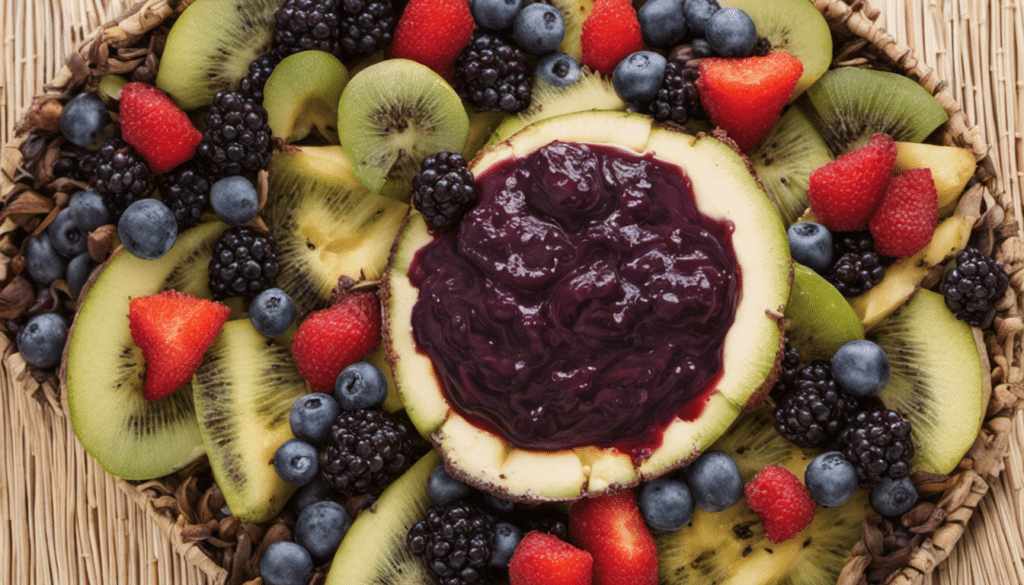All About Guyabanos
The Guyabano, also known as soursop, custard apple or graviola, is an enigmatic fruit that’s making waves in the health and wellness scene due to its impressive nutritional profile and purported medicinal properties.
Origin and Cultivation
The Guyabano is native to the Caribbean and Central America but is now widely cultivated—and vastly appreciated—in many parts of the tropics, especially in Southeast Asia. The evergreen trees on which they grow are as visually appealing as the fruits are scrumptious, with glossy, dark green leaves and beautiful, yellow blooms making up the landscape.
Appearance and Taste of a Guyabano
The Guyabano is no ordinary fruit. With its large, oval shape—typically around 30cms in length—and spiny, green skin, this fruit doesn’t quite blend into the crowd. Inside, the flesh of the guyabano is creamy and white, sprinkled generously with black, inedible seeds. The fruit has a unique taste that’s both sweet and tart, much like a combination of strawberries and pineapples, with underlying notes of coconut or banana.
Nutritional Value
Despite its curious exterior, the Guyabano is brimming with an impressive array of nutrients. Rich in Vitamin C, B vitamins, and numerous beneficial antioxidants, it also carries a healthy dose of dietary fiber, protein and essential minerals such as potassium, magnesium, and iron. Additionally, Guyabano is remarkably low in calories, a feature that’s endearing to those who wish to relish the fruit without worrying about an excessive caloric intake. NASA even included it on their list of potential space foods due to its high nutritional content.
Health Benefits of Guyabano
The health benefits of the Guyabano go beyond its rich nutritional profile. The fruit is said to be beneficial in combating cancer, as extracts from it have shown promising results in killing certain types of liver and breast cancer cells, according to a study published by the National Institutes of Health.
Likewise, Guyabano is known for its antimicrobial and anti-inflammatory properties, potentially aiding in the reduction of infections and improving overall immune health. Its high antioxidant content also contributes to ongoing discussions of it having preventive effects against heart disease and diabetes.
Vitally, these potential health benefits are yet to be unequivocally confirmed through comprehensive scientific research, and therefore, while Guyabano is undoubtedly a nutritious addition to any diet, it should not be used as a substitute for professional medical advice or treatment.
Whether you choose to enjoy the Guyabano in fresh form, as a delectable sorbet, a refreshing smoothie, or even a surprising component in savory dishes, this versatile tropical wonder brings a touch of health and exotic flavor to your plate.
.




